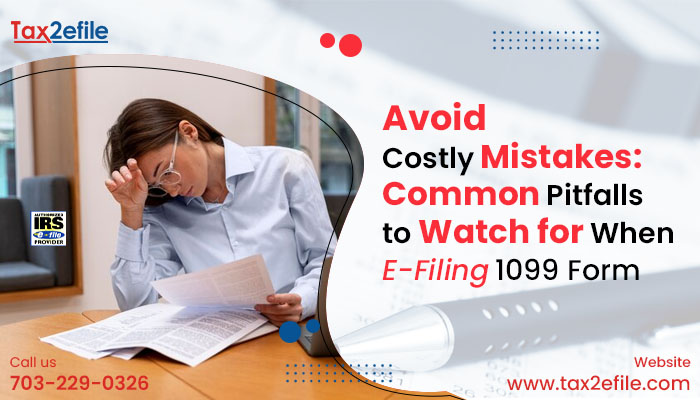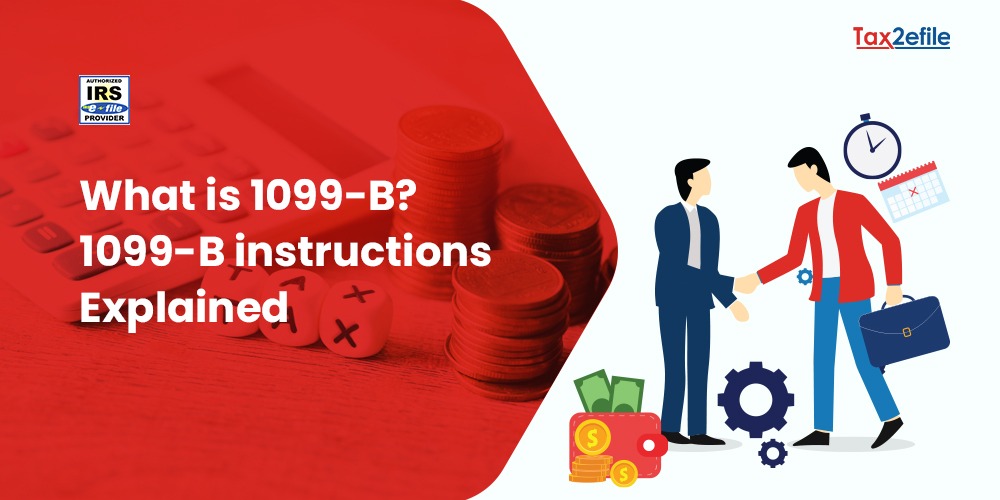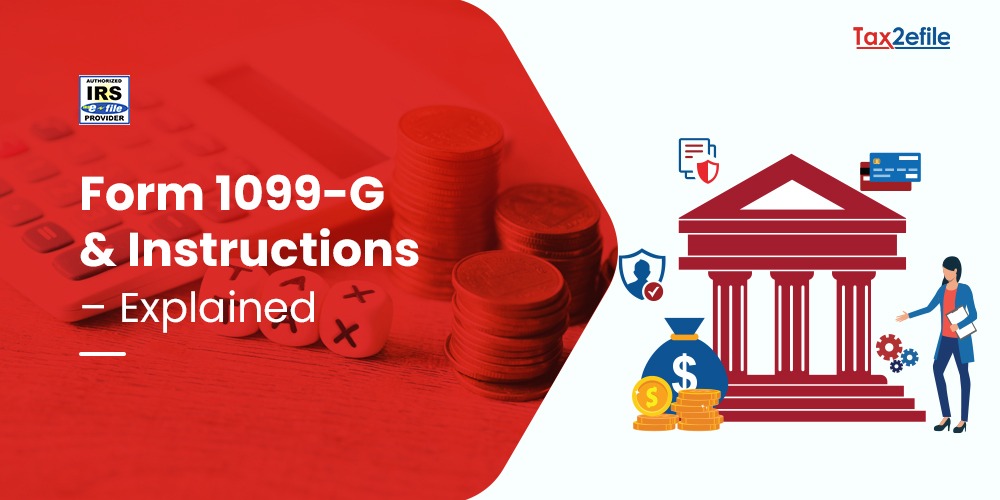- November 1, 2023

The taxpayers will file IRS Forms 1099 if they have earned Income as a sole proprietor, independent contractor, self-employed person, or as a sole owner of an LLC. Sole proprietors generally are hired by employers and independent contractors. They should report their Income and their earnings in a specific format with the IRS during tax time. As they do not work for any employer, these self-employed individuals are generally responsible for their entire tax amount.
Table of Contents
Common pitfalls to watch for while filing 1099 Forms
Self-employed individuals are responsible for tracking their Income, paving the way for unintentional errors in taxes. Let us discuss the common mistakes people make while filing Form 1099s and ways to rectify them here.
- Misunderstanding Form 1099
There are many different types of 1099 Forms to confuse the taxpayer. For instance, they will receive Form 1099-R for distributions from annuities, pensions, IRAs, insurance contracts, profit-sharing plans, etc. Similarly, they might get Form 1099-S if they received sales proceeds from real estate transactions. Thus, it is mandatory to file the right type of Form for the right type of Income. Especially those entering contract works should educate themselves adequately on Form 1099.
- Not considering all business expenses
Generally, self-employed workers will not consider their commuting costs as their business expenses. They can also depreciate the business equipment that has worked for more than a year. They can include machinery, computers, furniture, etc, and keep an account for the depreciation expense in Form 4562. In cases of not including business expenses, they end up overpaying thousands of dollars in taxes each year.
- Not maintaining adequate and appropriate records
Freelance contract workers should ensure to maintain adequate records of all their business receipts and show them as proof of business expenditure. For most taxpayers who file 1099 Forms, the main mistake is a need for more organization, and this could, in turn, result in additional tax payments and in paying penalty fees.
- Entering incorrect information
Most of the independent contractors make simple writing or typing errors in Form 1099 and end up incurring the biggest headaches. For example, entering an incorrect tax ID number or wrong Social Security number can create major problems in processing the returns. Thus, taxpayers must review all the numbers on their tax filing returns for accuracy. They should also check if all the names in their return are spelled correctly. It is also mandatory to ensure that all relevant pages are dated, duly filled, and signed.
Ways to avoid common mistakes while filing Form 1099
There are many different types of 1099 tax Forms, and it is very common for taxpayers to commit mistakes while filing them. Here are some simple tips and tricks that help to avoid such costly mistakes while filing Form 1099.
- Gather all correct information before beginning to file the tax returns.
- Make sure to write the correct postal, province, and town code. IRS can penalize the taxpayer for showing incomplete non-employee compensation.
- Make sure to include the correct taxpayer name and TIN failing while the taxpayer has to pay $280 as a penalty.
- Make sure to submit Form 1099 on time. IRS charges between $50 and $280 for late filing on Tax Forms.
- The best option is to choose to E-file 1099 Forms, as most of the errors can be rectified by the dedicated tax filing authority that e-files the tax Form.
Conclusion
Those who wish to file the 1099 Form by paper should ensure that it reaches the IRS before February 28. Those who wish to e-file the Form online should submit the Form before March 31st. Taking help from credible tax filing agencies like Tax2efile can ensure to file 1099 Forms without errors and within the deadline.


